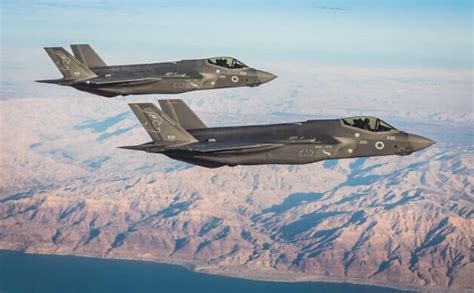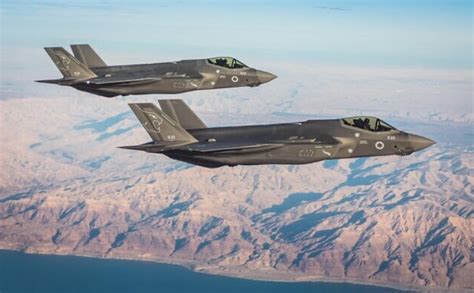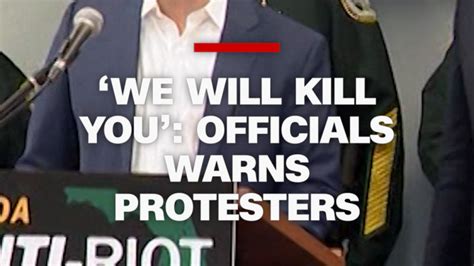
Iran’s state-backed media is reporting that its air defense systems downed an Israeli F-35 stealth fighter jet over Isfahan province, while Israel has not issued any comment on the claim.
Iran’s state-run news agency IRNA reported early Friday that the Israeli F-35 fighter was targeted amid heightened tensions in the region, although no evidence has been provided to substantiate the claim. “An Israeli F-35 fighter jet was shot down by Iran’s air defense over Isfahan,” the agency stated, citing military sources. The alleged downing occurred amidst ongoing regional escalations, potentially further straining already fraught relations between Iran and Israel. The purported incident occurred within Isfahan province, a strategically significant area known to host key Iranian military installations, including nuclear facilities. Israel has remained conspicuously silent on the matter, neither confirming nor denying the Iranian claims. Such silence is not unusual for Israel, particularly in matters concerning covert or sensitive military operations. The ambiguity surrounding the incident leaves room for speculation and raises concerns about potential miscalculations in the already tense geopolitical environment. This event comes against the backdrop of increased regional instability, fueled by ongoing conflicts and proxy wars. The downing of an advanced fighter jet like the F-35 would represent a significant escalation and could trigger a more pronounced response from Israel and its allies. The F-35, known for its stealth capabilities and advanced technology, is a cornerstone of the Israeli Air Force. Its purported loss would not only be a military setback but also a blow to Israel’s prestige and deterrence capabilities.
The Iranian report, so far unverified by independent sources, has sent ripples throughout international diplomatic circles, prompting cautious statements and calls for de-escalation. Several countries have urged restraint from both sides, emphasizing the need to avoid actions that could further destabilize the region. The United States, a key ally of Israel, has been closely monitoring the situation, although it has yet to issue an official statement regarding the alleged downing. The incident is unfolding against a backdrop of heightened tensions between Iran and Israel, exacerbated by disputes over Iran’s nuclear program and its support for regional proxies. Any military confrontation between the two countries carries the risk of escalating into a wider regional conflict, potentially drawing in other major powers. The lack of verifiable information and conflicting narratives surrounding the incident underscore the challenges of reporting in a volatile geopolitical environment. It also highlights the importance of verifying information from multiple sources before drawing definitive conclusions. As the situation continues to develop, the international community remains on high alert, wary of the potential for further escalation and its far-reaching consequences. The incident occurs during a period when indirect negotiations between the United States and Iran over a return to the 2015 nuclear deal have stalled. The downing of the F-35, if confirmed, would further complicate efforts to revive the agreement.
The strategic implications of such an event are profound, potentially reshaping the balance of power in the Middle East. The incident also raises questions about the effectiveness of advanced stealth technology against modern air defense systems. The F-35, lauded for its ability to evade radar detection, was believed to be a key component of Israel’s military advantage in the region. Its purported downing could challenge this perception and prompt a reassessment of military strategies. The international community awaits further clarification and independent verification of the Iranian claims. In the interim, diplomatic efforts are underway to prevent any further escalation and to promote dialogue between the parties involved. The coming days are likely to be critical in determining whether this incident will lead to a broader conflict or whether de-escalation efforts will succeed in averting a crisis.
Amidst the uncertainty, the need for responsible reporting and careful analysis is paramount. Disseminating accurate information and avoiding the spread of misinformation are crucial to preventing miscalculations and misunderstandings that could exacerbate the situation. The incident serves as a stark reminder of the fragility of peace in the Middle East and the ever-present risk of conflict. The downing of an F-35, if confirmed, would have ramifications that extend far beyond the immediate region, impacting global security and international relations.
The silence from Israel on the matter is fueling speculation and concern. Military analysts note that Israel’s typical response to such claims is either outright denial or a measured acknowledgment, depending on the circumstances. The current silence suggests a level of seriousness that cannot be ignored. Some analysts believe Israel may be gathering intelligence and assessing the situation before issuing a formal statement. Others suggest that Israel may be engaging in behind-the-scenes diplomatic efforts to de-escalate the situation. The lack of transparency, however, creates a vacuum for misinformation and speculation to thrive, potentially further destabilizing the region.
The location of the alleged incident, Isfahan province, adds another layer of complexity to the situation. Isfahan is home to several key Iranian military and industrial facilities, including the Natanz uranium enrichment plant. Any military activity in this area is highly sensitive and carries the risk of escalating into a broader conflict. Israel has previously conducted covert operations targeting Iranian nuclear facilities, raising concerns about potential retaliation. The downing of the F-35 in this region could be interpreted as a direct response to those operations. The Iranian claim comes at a time of heightened tensions in the region, with both Iran and Israel engaged in a shadow war involving cyberattacks, sabotage, and targeted assassinations. The downing of the F-35, if confirmed, would represent a significant escalation of this conflict and could trigger a more direct military confrontation.
The F-35 fighter jet is one of the most advanced and expensive military aircraft in the world. It is designed to evade radar detection and conduct precision strikes against heavily defended targets. Israel has acquired a fleet of F-35s from the United States and has used them in combat operations in Syria and other countries. The loss of an F-35 would be a significant blow to Israel’s military capabilities and would raise questions about the effectiveness of the aircraft against modern air defense systems. The Iranian air defense systems are believed to include Russian-made S-300 surface-to-air missiles, which are capable of engaging aircraft at long ranges. The downing of the F-35, if confirmed, would demonstrate the effectiveness of these systems and could prompt other countries to acquire them. The incident also raises questions about the future of air warfare and the role of stealth technology in modern combat. As air defense systems become more sophisticated, it may become increasingly difficult for stealth aircraft to penetrate enemy airspace.
The international community is urging both Iran and Israel to exercise restraint and avoid any further escalation. The United States, the European Union, and other countries have called for dialogue and de-escalation. The United Nations is also closely monitoring the situation and has offered to mediate between the parties. However, the prospects for de-escalation remain uncertain, given the deep mistrust and animosity between Iran and Israel. Both countries have accused each other of destabilizing the region and have vowed to defend their interests. The downing of the F-35, if confirmed, would further complicate efforts to resolve the conflict and could lead to a protracted period of instability.
The incident underscores the importance of diplomacy and dialogue in resolving international disputes. Military force should be used only as a last resort, and all efforts should be made to find peaceful solutions to conflicts. The international community has a responsibility to promote peace and stability in the Middle East and to prevent any further escalation of the conflict between Iran and Israel. The downing of the F-35, if confirmed, should serve as a wake-up call to all those who believe that military force can solve complex political problems. The only way to achieve lasting peace in the Middle East is through dialogue, compromise, and mutual respect.
Further Developments and Analysis
As the initial shock of the Iranian claim subsides, the lack of concrete evidence continues to fuel skepticism among international observers. Experts point to the absence of visual confirmation, such as wreckage photos or recovered pilot remains, as a significant red flag. “In the age of ubiquitous satellite imagery and social media, it’s increasingly difficult to conceal evidence of a major incident like the downing of an F-35,” says Dr. Emily Landau, a senior research fellow at the Institute for National Security Studies in Tel Aviv. “The absence of such evidence casts considerable doubt on the Iranian claim.”
Furthermore, the technical complexities of intercepting an F-35 with Iranian air defense systems are being scrutinized. The F-35’s stealth capabilities are designed to minimize its radar cross-section, making it difficult to detect and track. While Iran possesses advanced air defense systems, including the Russian-made S-300, their effectiveness against a state-of-the-art stealth fighter remains a subject of debate. “The S-300 is a capable system, but it’s not a magic bullet,” explains retired Air Force General Thomas McInerney. “Successfully targeting an F-35 requires a combination of factors, including precise radar targeting, sophisticated electronic warfare capabilities, and a degree of luck.”
The timing of the Iranian claim is also raising eyebrows. The announcement comes amid ongoing regional tensions and stalled negotiations over Iran’s nuclear program. Some analysts speculate that the claim is a deliberate attempt by Iran to project strength and deter potential Israeli or U.S. military action. “This could be a message to Israel and the U.S. that Iran is capable of defending its airspace and that any attack would come at a cost,” suggests Professor Paul Pillar, a former CIA intelligence officer. “It’s a form of strategic signaling aimed at influencing the calculations of its adversaries.”
However, other analysts caution against dismissing the Iranian claim outright. They point to the possibility that the incident occurred during a covert operation, making it difficult for Israel to acknowledge without compromising sensitive information. “Israel has a long history of conducting covert operations in Iran, particularly targeting its nuclear program,” notes Bruce Riedel, a senior fellow at the Brookings Institution. “It’s possible that an F-35 was involved in such an operation and encountered unexpected resistance.”
The silence from Israel only adds to the ambiguity surrounding the incident. While Israel typically refrains from commenting on covert operations, its complete silence in this case is unusual. Some speculate that Israel is conducting its own investigation to determine what happened before issuing a formal statement. Others suggest that Israel is engaging in diplomatic efforts behind the scenes to de-escalate the situation.
Regardless of the truth behind the Iranian claim, the incident has already had a significant impact on regional tensions. It has heightened anxieties about a potential military confrontation between Iran and Israel and has further complicated efforts to resolve the conflict over Iran’s nuclear program. The international community remains on high alert, urging both sides to exercise restraint and avoid any actions that could further destabilize the region.
Potential Scenarios and Implications:
Several scenarios could explain the current situation, each with distinct implications for regional stability:
- Scenario 1: The Iranian claim is false. This is the most benign scenario. Iran may be exaggerating or fabricating the incident to project strength and deter potential adversaries. The impact would be limited to a temporary increase in regional tensions.
- Scenario 2: The F-35 was damaged but not destroyed. An F-35 may have sustained damage during a mission over Iran but managed to return to base. Israel may be downplaying the incident to avoid embarrassment and maintain its strategic advantage. This scenario would still raise concerns about the effectiveness of Iranian air defenses and the vulnerability of the F-35.
- Scenario 3: The F-35 was shot down, and Israel is concealing the incident. This is the most serious scenario. Israel may be concealing the downing of the F-35 to avoid a major escalation and maintain its deterrence posture. This would have significant implications for regional security and could trigger a more forceful Israeli response in the future.
- Scenario 4: Cyberattack/Electronic Warfare Complication: An electronic warfare attack could have impacted the F-35 causing it to crash, or Iran could be lying to claim responsibility instead of attributing the crash to a malfunction.
The Geopolitical Landscape
The incident is playing out against a complex geopolitical backdrop, characterized by several key factors:
- Iran’s Nuclear Program: Iran’s nuclear program remains a major source of tension in the region. Israel views Iran’s nuclear ambitions as an existential threat and has repeatedly threatened military action to prevent Iran from acquiring a nuclear weapon.
- Regional Proxy Conflicts: Iran and Israel are engaged in a shadow war in several countries in the Middle East, including Syria, Lebanon, and Yemen. Both countries support opposing sides in these conflicts, further fueling regional instability.
- U.S.-Iran Relations: Relations between the United States and Iran remain strained. The U.S. withdrew from the 2015 nuclear deal under President Trump and reimposed sanctions on Iran. Efforts to revive the deal under President Biden have stalled.
- The Abraham Accords: The Abraham Accords, which normalized relations between Israel and several Arab countries, have reshaped the geopolitical landscape in the Middle East. Iran views the accords as a threat to its regional influence.
The Role of Information Warfare
The incident highlights the growing importance of information warfare in modern conflicts. Both Iran and Israel are known to engage in disinformation campaigns to influence public opinion and shape the narrative surrounding events. In this case, Iran’s claim about the downing of the F-35 may be part of a broader effort to project strength and undermine Israel’s credibility. It is crucial to critically evaluate information from all sources and to avoid spreading unverified claims.
The Future Outlook
The future outlook for the region remains uncertain. The incident involving the alleged downing of the F-35 has further heightened tensions and increased the risk of a military confrontation between Iran and Israel. De-escalation efforts are crucial to preventing a wider conflict. The international community must work together to promote dialogue and find peaceful solutions to the underlying issues driving the conflict. The downing of the F-35 has far reaching strategic implications, depending on the authenticity of the incident.
Frequently Asked Questions (FAQ)
1. Has Israel confirmed or denied the Iranian claim that an F-35 was shot down?
No, Israel has remained silent on the issue, neither confirming nor denying the Iranian claim. This silence has fueled speculation and heightened tensions.
2. What evidence has Iran provided to support its claim?
As of the latest reports, Iran has not provided any concrete evidence, such as wreckage photos or recovered pilot remains, to support its claim that it shot down an Israeli F-35.
3. Where did the alleged downing take place?
Iran claims the incident occurred over Isfahan province, a strategically important region in Iran that houses key military and nuclear facilities.
4. What are the potential implications if the Iranian claim is true?
If the claim is true, it could significantly escalate tensions between Iran and Israel, potentially leading to a more direct military confrontation. It would also raise questions about the effectiveness of the F-35’s stealth technology and the capabilities of Iranian air defense systems.
5. What are the possible reasons for Israel’s silence on the matter?
There are several possible reasons for Israel’s silence, including:
- Gathering intelligence and assessing the situation before issuing a formal statement.
- Engaging in behind-the-scenes diplomatic efforts to de-escalate the situation.
- Concealing a covert operation to protect sensitive information.
- Awaiting confirmation before responding to the claims.
- Avoiding acknowledgment of the incident to minimize its impact and prevent escalation.
6. What air defense systems does Iran possess that could potentially target an F-35?
Iran possesses various air defense systems, including the Russian-made S-300 surface-to-air missile system. The S-300 is considered an advanced system capable of engaging aircraft at long ranges, but its effectiveness against stealth fighters like the F-35 is still debated. Other systems include domestically produced radar and missile systems of varying capabilities.
7. How would the downing of an F-35 impact Israel’s military capabilities?
The downing of an F-35 would be a significant blow to Israel’s military capabilities, as the F-35 is one of the most advanced and expensive military aircraft in the world. It would also raise concerns about the effectiveness of the aircraft against modern air defense systems and could prompt a reassessment of military strategies.
8. What is the international community’s reaction to the Iranian claim?
The international community has urged both Iran and Israel to exercise restraint and avoid any further escalation. The United States, the European Union, and other countries have called for dialogue and de-escalation. The United Nations is also closely monitoring the situation.
9. What is the significance of the location (Isfahan province) where the alleged downing occurred?
Isfahan province is strategically important because it is home to several key Iranian military and industrial facilities, including the Natanz uranium enrichment plant. Any military activity in this area is highly sensitive and carries the risk of escalating into a broader conflict.
10. How might this incident affect the ongoing tensions and negotiations related to Iran’s nuclear program?
The incident could further complicate efforts to revive the 2015 nuclear deal, which has been stalled. Heightened tensions and mistrust between Iran and Israel make it more difficult to achieve a diplomatic breakthrough. The incident could also embolden hardliners in both countries, making compromise less likely.
11. What is the Abraham Accord and how does it affect the current situation? The Abraham Accords are a series of normalization agreements between Israel and several Arab nations, brokered by the United States. Iran views the accords as a threat to its regional influence, increasing tensions and potentially leading to a more assertive stance, contributing to the current instability.
12. What is information warfare and how it is relevant to this incident? Information warfare involves the use of propaganda, disinformation, and cyberattacks to influence public opinion and undermine an adversary’s credibility. Both Iran and Israel have been accused of engaging in information warfare, with the Iranian claim about the F-35 possibly being part of a broader effort to project strength and influence perceptions of regional power dynamics.
13. What specific type of anti-air technology could Iran have used? Possible systems include the S-300 missile system and potentially the Bavar-373, Iran’s domestically produced long-range air defense system. Details about the specific system involved are not confirmed due to the absence of verifiable evidence.
14. What are the potential legal implications under international law if the downing of the F-35 is confirmed to be an act of aggression?
If confirmed as an act of aggression, it could trigger international condemnation and potentially lead to sanctions or other diplomatic actions against the aggressor, in accordance with international law and the UN Charter, though the enforcement of such actions varies.
15. How could the incident impact future arms sales and military alliances in the Middle East? It could lead countries in the region to reassess their military strategies and potentially increase their demand for advanced air defense systems or other weapons. It could also prompt stronger military alliances among countries that perceive a common threat.









